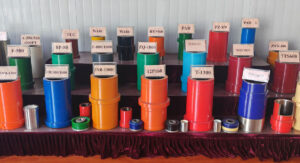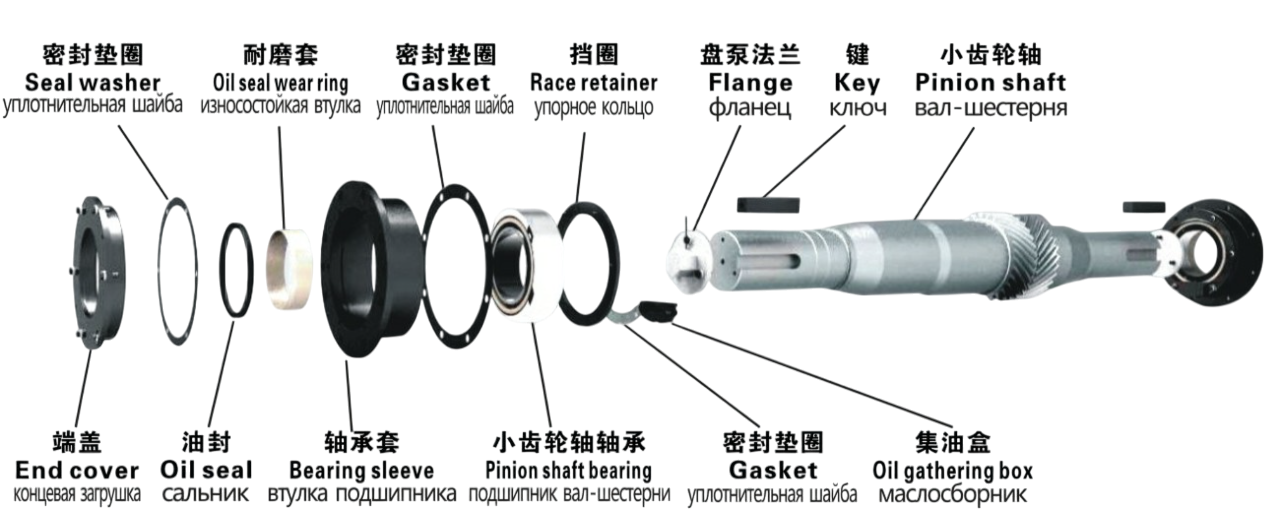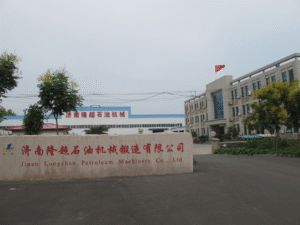Why Mud Pump Spare Parts Matter in Modern Industry
Mud pump spare parts are the backbone of critical operations in oil drilling, geological exploration, and construction. These components ensure efficient fluid circulation, pressure management, and durability under extreme conditions. As global demand for energy and infrastructure grows, the market for mud pump spare parts is projected to reach $67.3 billion by 2030, driven by technological advancements and regional demand shifts.
Internal Link: Explore our ceramic-coated cylinder liners for enhanced wear resistance.
Core Components of Mud Pump Systems
1. Suction & Discharge Valves
Valves regulate fluid flow and pressure, with modern designs like the 凡尔阀结构 integrating flow guide slots and conical sealing surfaces to minimize turbulence.
Material Comparison:
| Valve Type | Durability | Cost | Suitable Conditions |
|---|---|---|---|
| Standard Steel | Moderate | Low | Low-abrasion environments |
| Ceramic Valve | Very High | High | Extreme abrasion/corrosion |
External Link: Learn more about valve design standards.
2. Pistons & Cylinder Liners
Pistons and liners convert rotational energy into hydraulic pressure. Innovations like alumina-zirconia ceramic coatings (HRC 60-65 hardness) extend service life by 5x compared to traditional chromium steel.
Maintenance Tip: Replace pistons when wear exceeds 0.3mm diameter loss to prevent seal failure.

Internal Link: Custom piston solutions.
3. Crankshafts & Power End Parts
Crankshafts endure torsional stresses, with five-bearing designs reducing deflection by 40%. Precision balancing to G1.0 standard minimizes vibration, extending bearing life by 2,000+ hours.
External Link: Global crankshaft manufacturing trends.
Mud pump spare parts Industry Applications & Technical Requirements
Oil Drilling Sector
Mud pumps in oil drilling operate at pressures up to 3,000 psi, with tungsten carbide coatings combating abrasive drilling fluids.
Pressure Comparison:
| Pump Model | High Pressure (psi) | Application |
|---|---|---|
| F1600 | 1,600-3,000 | Deep drilling |
| F2200HL | 2,200-3,500 | Ultra-deep wells |
Case Study: A 2024 offshore project using ceramic-coated valves reduced maintenance costs by 40%.
Internal Link: High-pressure mud pumps for oil drilling.
Geological Exploration
The BW-320 pump offers flow rates of 118-320 L/min, ideal for variable geological conditions.
Efficiency Metrics:
- Volumetric Efficiency: ≥90%
- Total Efficiency: 78%
External Link: BW-320 technical specifications.
Construction Projects
UHMW-PE-lined pumps handle high-viscosity slurries with 7-10x greater wear resistance than steel.
Application Example: Bridge foundation projects using BW-150 pumps achieved 85% operational efficiency.
Internal Link: Durable construction pumps.
Market Trends & Innovations
Regional Growth Drivers Mud pump spare parts
| Region | 2025 Market Share | Growth Driver |
|---|---|---|
| Asia-Pacific | 45% | China’s “14th Five-Year Plan” |
| North America | 25% | Shale gas exploration |
External Link: Global mud pump market analysis.
Material Innovations
- Ceramic Coatings: Reduce material waste by 35% and extend liner lifespan.
- Composite Materials: Dual-metal centrifugal cast liners cut costs by 20-30%.
Internal Link: Advanced material solutions.
Smart Monitoring Systems
IoT sensors enable 92% fault prediction accuracy, reducing downtime by 30%.
Example: 1200KW变频驱动 systems cut energy consumption by 25% in oilfields.
External Link: IoT in industrial equipment.
Mud pump spare parts Maintenance Best Practices
Routine Maintenance Checklist
| Task | Frequency | Action |
|---|---|---|
| Lubrication Check | Daily | Use ISO VG 68-100 oil |
| Valve Inspection | Weekly | Replace if sealing surfaces show >0.3mm corrosion |
Internal Link: Maintenance guides.
Common Failures & Solutions
- Valve Leakage: Replace tungsten carbide seats per API 7K standards.
- Piston Wear: Install ceramic-coated pistons for abrasive slurries.
External Link: API 7K compliance guide.
Conclusion
The mud pump spare parts industry is evolving rapidly, driven by material science breakthroughs and smart technology integration. Key trends for 2025 include:
- Sustainability: Green manufacturing standards (e.g., GB30253-2020).
- Digital Integration: IoT-enabled predictive maintenance.
- Hybrid Solutions: Ceramic coatings with real-time wear monitoring.








